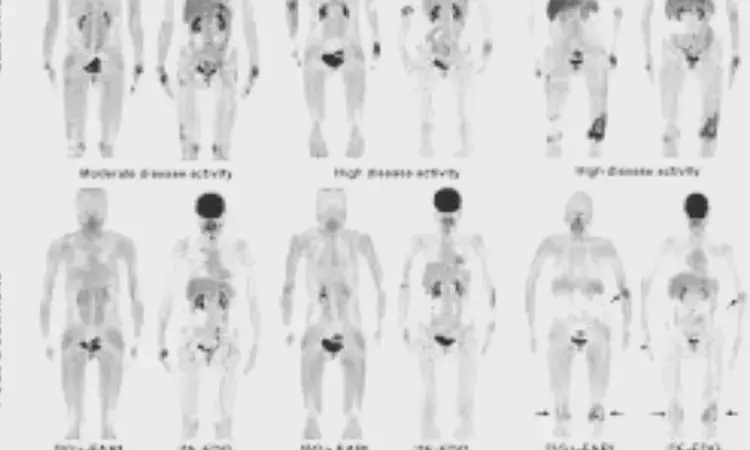- Home
- Medical news & Guidelines
- Anesthesiology
- Cardiology and CTVS
- Critical Care
- Dentistry
- Dermatology
- Diabetes and Endocrinology
- ENT
- Gastroenterology
- Medicine
- Nephrology
- Neurology
- Obstretics-Gynaecology
- Oncology
- Ophthalmology
- Orthopaedics
- Pediatrics-Neonatology
- Psychiatry
- Pulmonology
- Radiology
- Surgery
- Urology
- Laboratory Medicine
- Diet
- Nursing
- Paramedical
- Physiotherapy
- Health news
- Fact Check
- Bone Health Fact Check
- Brain Health Fact Check
- Cancer Related Fact Check
- Child Care Fact Check
- Dental and oral health fact check
- Diabetes and metabolic health fact check
- Diet and Nutrition Fact Check
- Eye and ENT Care Fact Check
- Fitness fact check
- Gut health fact check
- Heart health fact check
- Kidney health fact check
- Medical education fact check
- Men's health fact check
- Respiratory fact check
- Skin and hair care fact check
- Vaccine and Immunization fact check
- Women's health fact check
- AYUSH
- State News
- Andaman and Nicobar Islands
- Andhra Pradesh
- Arunachal Pradesh
- Assam
- Bihar
- Chandigarh
- Chattisgarh
- Dadra and Nagar Haveli
- Daman and Diu
- Delhi
- Goa
- Gujarat
- Haryana
- Himachal Pradesh
- Jammu & Kashmir
- Jharkhand
- Karnataka
- Kerala
- Ladakh
- Lakshadweep
- Madhya Pradesh
- Maharashtra
- Manipur
- Meghalaya
- Mizoram
- Nagaland
- Odisha
- Puducherry
- Punjab
- Rajasthan
- Sikkim
- Tamil Nadu
- Telangana
- Tripura
- Uttar Pradesh
- Uttrakhand
- West Bengal
- Medical Education
- Industry
FAPI-PET can visualize changes in joints of rheumatoid arthritis patients: Study

China: Gallium-68 (Ga-68) fibroblast activation protein inhibitor (FAPI)-PET can visualize changes in joints of rheumatoid arthritis patients and is a promising tool for monitoring patients undergoing treatment, a recent study has shown. The study was published in Radiology, the Radiological Society of North America journal.
Yaping Luo and colleagues from China aimed to determine the performance of 68Ga-labeled FAP inhibitor in assessing joint disease activity of rheumatoid arthritis (RA) and to compare it with fluorine 18 (18F) fluorodeoxyglucose (FDG) imaging. They found that the approach shoes a greater degree and amount of affected joints than the F-18 FDG-PET/CT imaging.
"PET/CT with gallium 68–labelled FAPI revealed increased uptake in the rheumatoid arthritis participants' affected joints and corresponded with clinical and laboratory disease markers," the researchers wrote in their study.
Fibroblast-like synoviocyte cells in rheumatoid arthritis overexpress fibroblast activation protein (FAP). Fibroblast-like synoviocyte cells are involved in articular cartilage and bone inflammation. This feature could be leveraged to improve disease imaging assessment.
For this purpose, the researchers prospectively enrolled twenty participants with RA (15 women, mean age, 55 years) from 2020 to 2021. They underwent laboratory and clinical assessment of disease activity and dual-tracer (18F-FDG and 68Ga-FAPI) imaging.
Imaging-derived variables of PET joint count (the number of joints positive for rheumatoid arthritis at PET) and PET articular index (a sum of joint pain using a three-point scale) corresponded to laboratory and clinical disease activity variables.
The study led to the following findings:
- Of the 620 751 children born in Finland during the study period, 1.65% had an isolated CHD.
- T1DM was associated with an increased risk of having a child with any CHD (OR 3.71), whereas maternal overweight (OR 0.98) and obesity (OR 1.00) were not.
- When analyzing anatomical subgroups, T1DM was associated with an increased risk in six subgroups.
- Maternal overweight was associated with complex defects (OR 2.24), left ventricular outflow tract obstruction (OR 1.26), maternal obesity with complex defects (OR 3.22), and right ventricular outflow tract obstruction (OR 1.26).
- At the population level, maternal diabetes accounted for 3.0% and maternal overweight and obesity for 0.7% of offspring's CHD.
The researchers conclude, "these findings suggest that further research is warranted to clarify the Ga-68 FAPI's role in measuring disease activity in rheumatoid arthritis patients."
"Ga-68 FAPI is not yet among PET radiotracers matched with therapies, as F-18 FDG is with diseases involving glucose hypometabolism," Dr. Hadyn Williams and Dr Mark Ahlman of the Medical College of Georgia in Augusta wrote in an accompanying editorial.
The group noted that additional research could change this, particularly given that the cells Ga-68 FAPI targets in RA are mesenchymal-derived, so their inhibition by potential therapies may be conducted without immunosuppressive consequences for patients.
"Although not yet clinically available, Ga-68 FAPI could have a similar role in RA diagnosis and serve as a baseline for stringent monitoring of therapy response requiring crucial adjustments," they concluded.
Reference:
Luo Y, Pan Q, Zhou Z, Li M, Wei Y, Jiang X, Yang H, Li F. 68Ga-FAPI PET/CT for Rheumatoid Arthritis: A Prospective Study. Radiology. 2023 Feb 28:222052. doi: 10.1148/radiol.222052. Epub ahead of print. PMID: 36853178.
Dr Kamal Kant Kohli-MBBS, DTCD- a chest specialist with more than 30 years of practice and a flair for writing clinical articles, Dr Kamal Kant Kohli joined Medical Dialogues as a Chief Editor of Medical News. Besides writing articles, as an editor, he proofreads and verifies all the medical content published on Medical Dialogues including those coming from journals, studies,medical conferences,guidelines etc. Email: drkohli@medicaldialogues.in. Contact no. 011-43720751


